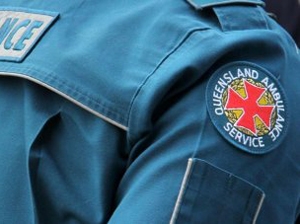The fight against COVID-19 continues with additional Queensland Ambulance Service (QAS) officers fast-tracked into Queensland communities to assist in the pandemic response.
Premier Annastacia Palaszczuk said the addition to the workforce will help cater for an increase in demand for health care in Queensland if needed.
“We know we will continue to see more cases over the coming weeks which is why we’re fast-tracking paramedic training, to get extra sets of hands into Queensland communities,” Ms Palaszczuk said.
“Our ambulance officers are playing a big role in identifying potential COVID-19 cases and getting patients to facilities where they can be tested, isolated and treated as required.”
Minister for Health and Minister for Ambulance Services Steven Miles said Queenslanders can be reassured the Palaszczuk Government is continuing to boost frontline resources to assist patients who’ve contracted the virus.
“Our healthcare workers are literally facing the virus head on during our fight against this pandemic,” Minister Miles said.
“Which is why we have already deployed an extra 45 paramedics across the state with another 30 graduates commencing their training this week with another 30 to commence training on 20 April.
“The graduates will be deployed within three weeks of their induction to assist with the pandemic preparations and response across the State.
“The majority will be placed in the South East corner of the state depending on where the demand is.”
QAS Triple Zero (000) Operations Centres will also get a boost, with an additional 15 Emergency Medical Dispatchers to begin training on 27 April 2020.
QAS Commissioner Russell Bowles said planning for a possible surge in workload had been ongoing since January.
“We’re well versed at preparing for and responding to major events and while this pandemic is something new we’re confident we have the plans in place to meet community demand,” Commissioner Bowles said.
Since 2015, the Palaszczuk Government has hired 580 additional paramedics, built 14 new and replacement ambulance stations and announced plans to build another 9 new or replacement ambulance stations, purchased 727 new and replacement ambulance vehicles, and increased QAS annual budget by $296.49 million.








